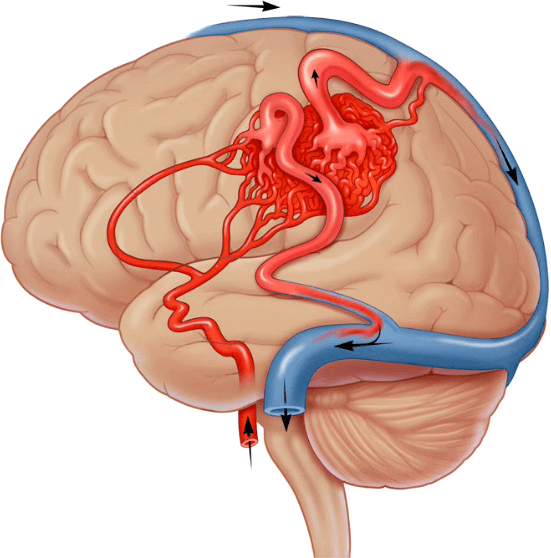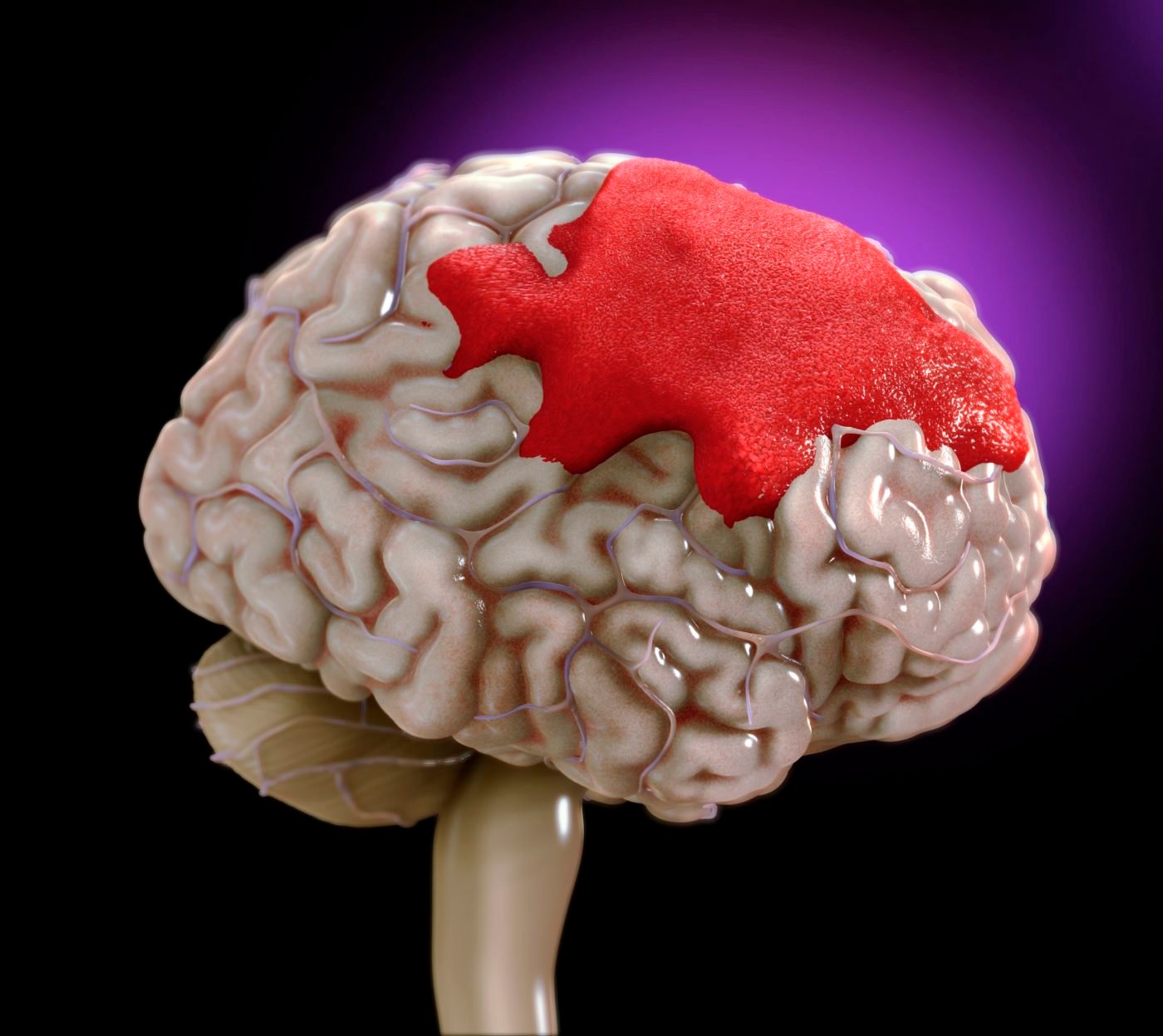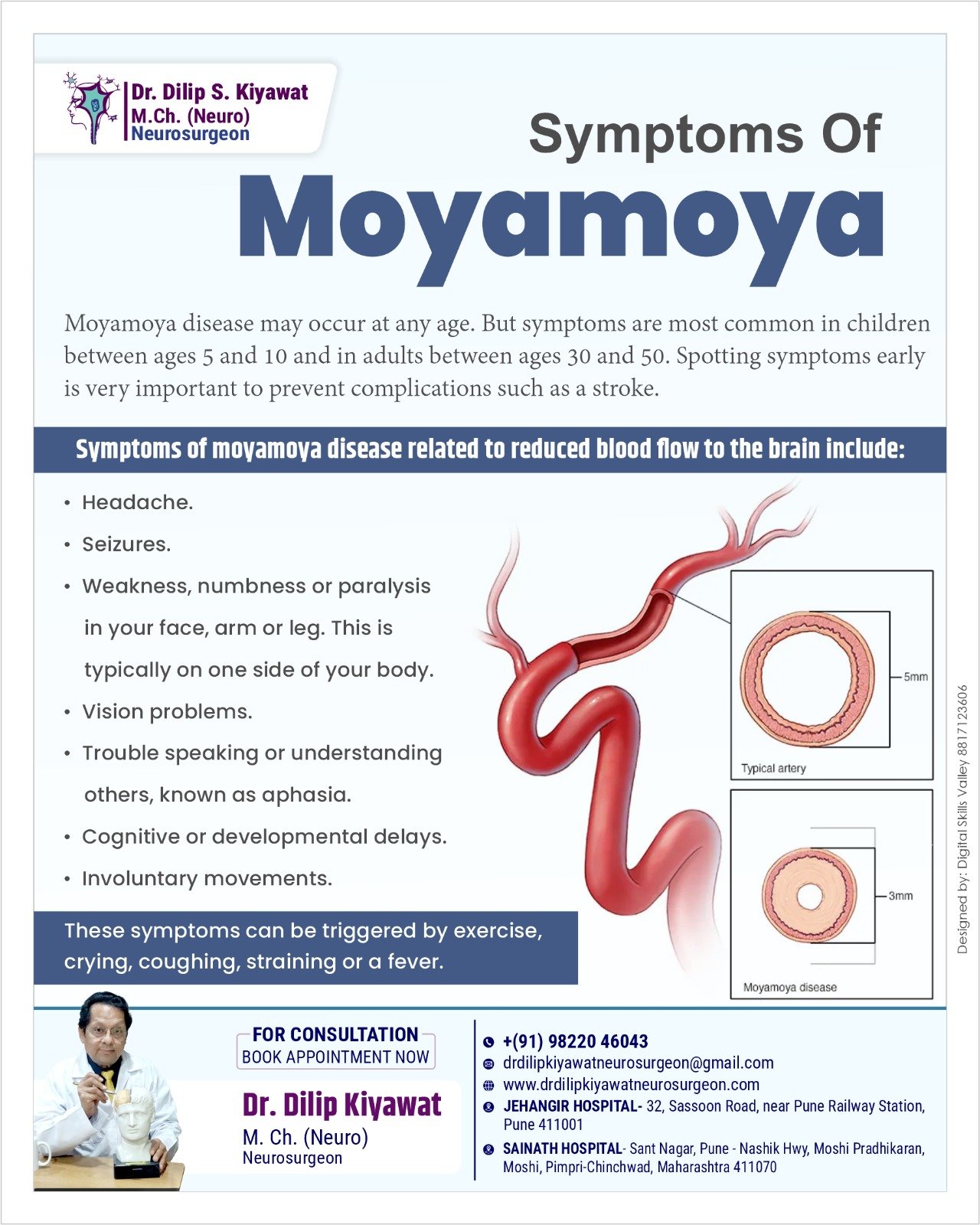Moyamoya disease is a rare, progressive cerebrovascular disorder that affects the arteries at the base of the brain. It is characterized by the narrowing or blockage of these arteries, leading to reduced blood flow and the formation of fragile, tiny blood vessels that develop to compensate for the blockage. This condition can result in serious complications, such as strokes and seizures. Understanding the symptoms, causes, and treatment options for Moyamoya disease is crucial for managing the condition effectively.
What is Moyamoya Disease?
Moyamoya disease gets its name from a Japanese term meaning “puff of smoke,” which describes the appearance of the tiny blood vessels that form to bypass the blocked arteries. This disease can occur at any age, but symptoms are most commonly seen in children between the ages of 5 and 10 and in adults between the ages of 30 and 50.
Symptoms of Moyamoya Disease
The symptoms of Moyamoya disease are primarily related to reduced blood flow to the brain. These symptoms can vary in severity and may be triggered by activities that increase blood flow demand, such as exercise, crying, coughing, straining, or fever. Key symptoms include:
- Headache: Persistent or recurring headaches can be a sign of Moyamoya disease.
- Seizures: Seizures are a common symptom and may vary in intensity.
- Weakness, numbness, or paralysis: These symptoms typically affect one side of the body and can impact the face, arm, or leg.
- Vision problems: Blurred vision or other visual disturbances may occur.
- Trouble speaking or understanding speech (aphasia): Difficulty in communication can be a significant symptom.
- Cognitive or developmental delays: In children, delays in reaching developmental milestones may be noticed.
- Involuntary movements: Uncontrolled movements can be a symptom of Moyamoya disease.
Causes of Moyamoya Disease
The exact cause of Moyamoya disease is not well understood. However, several factors may contribute to its development:
- Genetics: There is evidence to suggest a genetic predisposition to Moyamoya disease. It is more common in certain populations, particularly in East Asian countries such as Japan, Korea, and China.
- Other health conditions: Moyamoya disease may be associated with other medical conditions, such as neurofibromatosis type 1, Down syndrome, sickle cell disease, and certain types of vasculitis.
Diagnosis of Moyamoya Disease
Diagnosing Moyamoya disease typically involves a combination of medical history evaluation, physical examination, and imaging studies. The following diagnostic tests are commonly used:
- Magnetic Resonance Imaging (MRI): An MRI scan can reveal changes in the brain’s blood vessels and identify areas of reduced blood flow.
- Magnetic Resonance Angiography (MRA): This test provides detailed images of blood vessels in the brain and can detect the characteristic “puff of smoke” appearance.
- Cerebral Angiography: This invasive test involves injecting a contrast dye into the blood vessels and taking X-rays to visualize blood flow and blockages.
Treatment for Moyamoya Disease
Treatment for Moyamoya disease focuses on improving blood flow to the brain and reducing the risk of complications such as stroke. The main treatment options include:
- Surgical procedures: Several surgical techniques can help restore blood flow to the brain. These include direct revascularization (e.g., STA-MCA bypass surgery) and indirect revascularization procedures (e.g., EDAS, EMS).
- Direct revascularization: Involves connecting a scalp artery directly to a brain artery to bypass the blocked vessels.
- Indirect revascularization: Promotes the development of new blood vessels over time by placing tissues near the brain’s surface.
- Medications: While there are no specific medications to cure Moyamoya disease, certain drugs can help manage symptoms and reduce the risk of stroke. These include anticoagulants and antiplatelet medications to prevent blood clots.
- Regular monitoring: Ongoing medical follow-up is essential to monitor the progression of the disease and adjust treatment as needed.
Living with Moyamoya Disease
Living with Moyamoya disease requires a comprehensive approach to manage symptoms, reduce the risk of complications, and maintain overall health. Key strategies include:
Lifestyle modifications: Adopting a healthy lifestyle can help manage symptoms and improve overall well-being. This includes maintaining a balanced diet, regular exercise, avoiding smoking, and managing stress.
Education and support: Educating patients and their families about Moyamoya disease is crucial for effective management. Support groups and counseling can provide emotional support and practical advice.
Regular medical check-ups: Regular visits to a healthcare provider specializing in Moyamoya disease are essential to monitor the condition and make necessary adjustments to the treatment plan.
Expert Care in Pune
For those seeking specialized care for Moyamoya disease in Pune, Dr. Dilip Kiyawat, M.Ch. (Neuro), is a leading spine and neurosurgeon with extensive experience in the field of brain tumor surgery. Dr. Dilip S. Kiyawat practices at Jehangir Hospital and Sainath Hospital in Pune and is well-regarded for his expertise and compassionate care.
Contact Information:
Phone: +91 98220 46043
Email: drdilipkiyawatneurosurgeon@gmail.com
Hospitals:
Jehangir Hospital: 32, Sassoon Road, near Pune Railway Station, Pune 411001
Sainath Hospital: Sant Nagar, Pune-Nashik Hwy, Moshi Pradhikaran, Moshi, Pimpri-Chinchwad, Maharashtra 411070
Receiving prompt and specialized medical care is essential for managing Moyamoya disease effectively. If you or a loved one are experiencing symptoms or have been diagnosed with Moyamoya disease, consulting with a specialist like Dr. Dilip S. Kiyawat can provide the necessary treatment and support for a better quality of life.
Conclusion
Moyamoya disease is a complex and challenging condition that requires careful management and specialized care. Understanding the symptoms, causes, and treatment options is crucial for patients and their families. With proper medical intervention and ongoing support, individuals with Moyamoya disease can lead fulfilling lives. If you suspect Moyamoya disease or have been diagnosed, seeking expert care from a qualified neurosurgeon like Dr. Dilip S. Kiyawat can make a significant difference in managing the condition and improving outcomes








